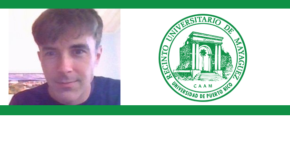 Should Spanish be a domestic language in higher education?
Should Spanish be a domestic language in higher education?
Jeffrey Herlihy-Mera, professor of humanities at The University of Puerto Rico-Mayaguez, discusses this question.
Jeffrey Herlihy-Mera is a professor of Humanities at the Universidad de Puerto Rico-Mayagüez and 2022 Obama Fellow at the Obama Institute for Transnational American Studies in Mainz, Germany. His books include, Decolonizing American Spanish (Pitt 2022), After American Studies (Routledge, 2018), Paris in American Literatures (Rowman, 2015) and In Paris or Paname (Rodopi 2011).
The Puertoricanization of U.S. Higher Ed
Jorge Durand once said, “Estados Unidos es un cementerio de lenguas” or the United States is a cemetery of languages. Millions of people in the United States are denied right to use Spanish and other languages as a part of public academic life. English-only policies exist to benefit the interests of certain communities and their institutions. In this way, US higher education foreignizes languages other than English, even when they are the local to campus. This policy truncates the knowledge that can be developed across disciplines; it privileges certain scholars and blocks others from participation.
Many studies indicate that if Spanish were transitioned from a foreign to a domestic language in US higher ed, such a decolonial move would benefit many Latinx scholars but also the academy as a whole. Using Spanish, if so desired, in classrooms, in STEM fields, in research, as well as institutional communication, peer review, accreditation assessments, funding applications, admissions documents, scholarly prizes, publishing, etc. is a move that would create new conceptual maps, revise inherited ones, and institutionalize marginalized and silenced voices and their stories.
Puerto Rican higher education has a sophisticated, fluid approach to language that does all of these things. Decolonizing the language best practices in the US, following Puerto Rico’s lead, would cultivate students’ experiences and sanction the identities they may perform, study, and seek knowledge about.
Adapting the US model in correspondence to the Puerto Rican system would reach beyond the limits of English-only controls, while shifting the range of voices who can participate in the academy. Instead of forcing an English-centric, linguicidal system across all regions, what would the US academy look like, what would it sound like, si fuera puertoricanizado? If students could use and hear the languages of their communities at the local university? Haría posible que crezca su experiencia educativa.

Comments
3 responses to “Jeffrey Herlihy-Mera, University of Puerto Rico Mayaguez – The Puertoricanization of U.S. Higher Ed”